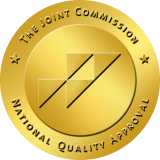Adolescent Substance Abuse Program (Adolescent IOP)
Empower Your Future
3 hour sessions - 3 times a week
- ADOLESCENT IOP (Intensive Outpatient Program)
- Ages 13-17

At Touchstone Recovery Center, our Adolescent Intensive Outpatient Program (IOP) is designed to provide young individuals with a comprehensive and compassionate approach to overcoming substance abuse. We understand the unique challenges faced by adolescents in today’s world, which is why our experienced team of therapists and counselors utilizes evidence-based treatments tailored to each individual’s needs. Through a combination of group therapy, family involvement, and skill-building exercises, our IOP empowers teens to regain control of their lives and embrace a future free from addiction. With the support of our nurturing environment and a focus on emotional well-being, Touchstone Recovery Center’s Adolescent IOP aims to foster resilience and create lasting change.
Our Program Includes
Schedule
Our Program Includes
- Small supervised group sessions
- One-on-one therapy sessions
- Private family sessions
- Drug and Alcohol testing for accountability
- Weekly doctor visits with our Medical Director
- Weekly one on one sessions with a counselor
Schedule
-
Monday 3:30 – 6:30 PM
-
Wednesday 3:30 – 6:30 PM
-
Friday 3:30 – 6:30 PM
Get the support and help you need to beat your addiction
Take the first step towards a brighter future for you or your loved one today. Join Touchstone Recovery Center and discover the path to healing, growth, and a life free from addiction. Our dedicated team is committed to helping you reclaim your life, one step at a time. Don’t wait any longer – contact us now and start your journey to lasting recovery. It’s time to embrace the support, guidance, and transformative experience that Touchstone Recovery Center has to offer.
- MOST INSURANCES ACCEPTED
Are You Covered for Addiction Treatment?
Common Questions About Our Adolescent Substance Abuse Program in Fresno
What are the common signs of adolescent substance abuse?
Some common signs of adolescent substance abuse include sudden changes in behavior, declining academic performance, loss of interest in hobbies or activities, secretive or deceitful behavior, changes in friend groups, unexplained mood swings, and physical signs such as bloodshot eyes, weight changes, or poor hygiene.
What factors contribute to adolescent substance abuse?
A: Factors contributing to adolescent substance abuse can include genetic predisposition, family history of addiction, exposure to substance use at home, peer pressure, mental health issues, low self-esteem, and a desire for experimentation or escapism.
How can I talk to my teenager about substance abuse?
What are the most effective treatments for adolescent substance abuse?
A: Effective treatments for adolescent substance abuse may include a combination of individual therapy, family therapy, group therapy, peer support, educational programs, and medication-assisted treatment when appropriate. The key is to address the underlying causes of substance abuse and provide tools for coping and building a healthier, drug-free lifestyle.
